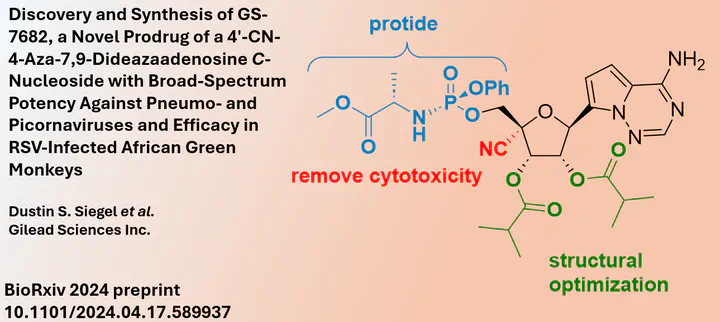Novel remdesivir type nucleoside analogue displays broad-spectrum antiviral activity

The development of remdesivir in recent years by Gilead Sciences was an example of the successful development of a novel nucleoside analogue that could be applied during the COVID-19 pandemic. However, as remdesivir requires intravenous administration, its use is limited to clinical settings. The major achievement during the development of this analogue was demonstrating that the cytotoxicity of the 4-aza-7,9-dideazaadenosine ribose could be diminished by the introduction of a 1’-CN group which at the same time retained the antiviral activity.
Building on this concept, Dustin S. Siegel and colleagues have now published a new study introducing the CN group at 4’ instead of 1’ position. This work, first appearing on the preprint server bioRxiv, provides a blueprint for those interested in learning more about nucleoside analogue development. The researchers not only report the cellular antiviral activity against respiratory syncytial virus (RSV), but also the activity of the triphosphate form against the RSV RNA-dependent RNA polymerase (RdRp). Furthermore, they examined the potential side effects on human RNA and DNA polymerases.
The researchers then evaluated prodrug concepts backed by in silico data and conducted an antiviral assessment against other viruses, revealing broad-spectrum activity against pneumo- and picornaviruses. Metabolism data finally revealed the rapid cellular uptake and triphosphate formation, and importantly, intratracheal aerosol administration in a monkey model led to the detection of active triphosphate levels in respiratory tissues.
Read more: Discovery and Synthesis of GS-7682, a Novel Prodrug of a 4′-CN-4-Aza-7,9-Dideazaadenosine C-Nucleoside with Broad-Spectrum Potency Against Pneumo- and Picornaviruses and Efficacy in RSV-Infected African Green Monkeys doi:10.1101/2024.04.17.589937